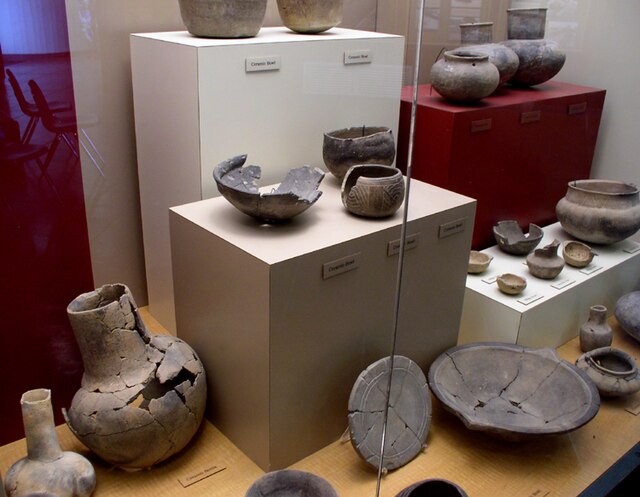Archaeological theory refers to the various intellectual frameworks through which archaeologists interpret archaeological data. Archaeological theory functions as the application of philosophy of science to archaeology, and is occasionally referred to as philosophy of archaeology. There is no one singular theory of archaeology, but many, with different archaeologists believing that information should be interpreted in different ways. Throughout the history of the discipline, various trends of support for certain archaeological theories have emerged, peaked, and in some cases died out. Different archaeological theories differ on what the goals of the discipline are and how they can be achieved.
Archaeologists such as Matthew Johnson have argued that most, if not all, aspects of archaeology are informed by theoretical considerations.
Processual archaeology is a form of archaeological theory. It had its beginnings in 1958 with the work of Gordon Willey and Philip Phillips, Method and Theory in American Archaeology, in which the pair stated that "American archaeology is anthropology, or it is nothing", a rephrasing of Frederic William Maitland's comment: "My own belief is that by and by, anthropology will have the choice between being history, and being nothing." The idea implied that the goals of archaeology were the goals of anthropology, which were to answer questions about humans and human culture. This was meant to be a critique of the former period in archaeology, the cultural-history phase in which archaeologists thought that information artifacts contained about past culture would be lost once the items became included in the archaeological record. Willey and Phillips believed all that could be done was to catalogue, describe, and create timelines based on the artifacts.

Processual archaeology originated in American archaeology, where analysing historical change over time had proved difficult with existing technology


